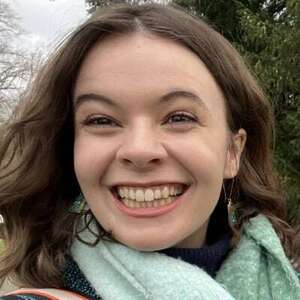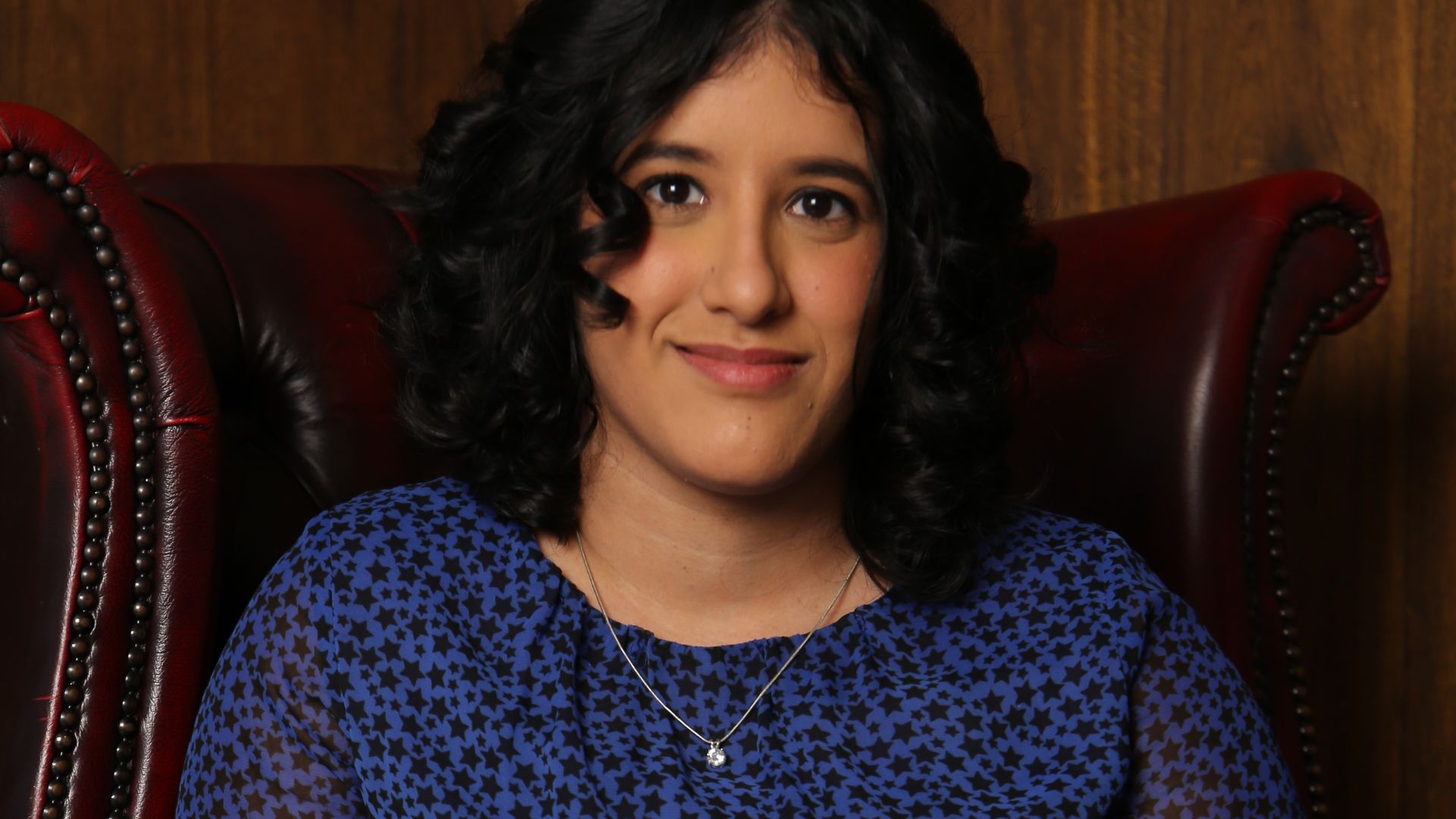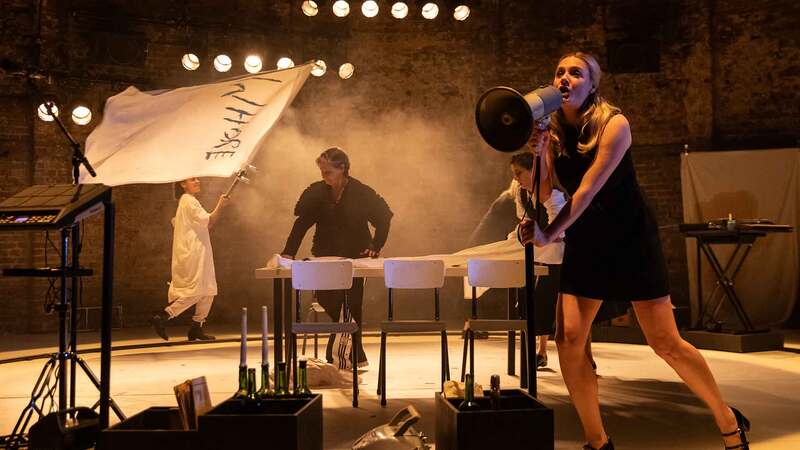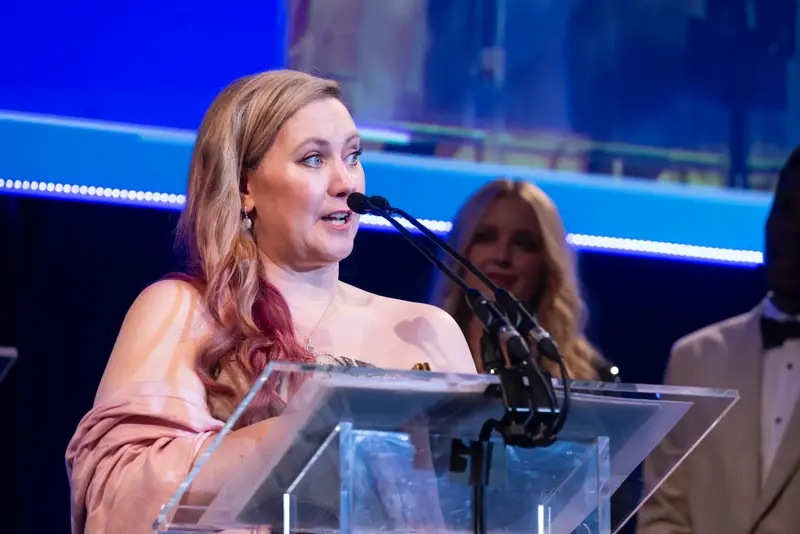You are viewing your 1 free article this month. Login to read more articles.
Ravena Guron talks about her YA Book Prize shortlisted novel, This Book Kills

Katie Fraser is the chair of the YA Book Prize and staff writer at The Bookseller. She has chaired events at the Edinburgh International ...more
Ravena Guron answers our questions about her propulsive debut This Book Kills (Usborne), which has been shortlisted for the YA Book Prize 2024.

Katie Fraser is the chair of the YA Book Prize and staff writer at The Bookseller. She has chaired events at the Edinburgh International ...more
What inspired the story?
This Book Kills was inspired by my own experiences of going to law school and entering the legal profession. I found myself surrounded by people with very different backgrounds to my own—my peers appeared to be much more confident than me, at ease in this corporate environment, whereas I was determined to keep my head down, afraid I would be told I didn’t belong. But I learned there are different types of confidence, and that I could have quiet confidence—an acknowledgement that I had worked hard for my place and had earned it; that I had all the skills and ability to do my job, and I did have something to say and contribute, just as much as my peers. I wanted to explore those themes of privilege and confidence in This Book Kills.
I was also inspired by Agatha Christie, whose books I loved as a teenager. I adored her twisty plots and her clever red herrings. I wanted This Book Kills to feel like a classic murder mystery, with a modern twist.
What do you want readers to take away from your book?
Firstly, that everyone’s voice matters, regardless of background—that you can aspire to be anything you want to be. That confidence doesn’t necessarily mean always being the loudest person in the room, and that there are different kinds. Sometimes it’s feeling comfortable in your own skin and believing in your own abilities.
Secondly, that anyone can be the main character of a story. When I was younger I would rewrite stories in my head so the characters looked like me, with brown skin, without really examining why or what I was looking for in those books. It’s so amazing to be able to now write this into my books and show that someone like me can be the hero too.
Which character is your favourite, and why?
Jess, the main character! She’s British-Indian like me, and it was lovely getting to put that representation into my book. But also, I like that she’s quite shy and a bit awkward—as well as being quite snarky inside her own head. She was a very fun character to spend time with, and the journey she goes on to find her own voice and confidence was very meaningful for me to write.
What does being on this year’s YA Book Prize shortlist mean to you?
I am utterly delighted and very honoured. The history the award has of championing its authors is incredible, and to join the ranks of the brilliant YA books that have been shortlisted over the years is a big pinch me moment!
How do you think the YA genre has changed over the last 10 years?
One thing I’ve noticed are great strides made in terms of more focus on bringing stories by underrepresented authors into the spotlight. Ten years ago, I couldn’t pick up a YA thriller and find a south Asian main character, or one written by an author who looked like me.
Seven years ago I read a report on diversity in publishing and felt disheartened. The cold, hard stats made it seem like there was no space or interest for stories like mine. But as the past few years have shown, the space and demand for a diverse range of authors was always there, and I think it’s amazing how quickly YA has embraced this.
Why do you write for young adults?
The YA books I read as a teenager are the ones that shaped me as a reader, the ones that had a lasting impression on me. I can quote lines from books I read, I can remember where I was when I read them. And I still adore reading YA books now—they can tackle big themes and ideas, but also have an undercurrent of hope running through them. So, when I came to write my own books it felt natural for me to gravitate towards writing YA.
What was your favourite book as a teenager?
And Then There Were None by Agatha Christie. The claustrophobic setting, the eerie poem, the utter brilliance of it. It was probably my first time reading a locked-room murder mystery, and I’ll never forget how I felt when I got to that ending.
What do you need around you when you’re writing?
A cup of tea, a playlist of sad songs and preferably a blanket.
What songs would be on a playlist for your book?
"Rich Kids" by FLØRE, "Favourite Crime" and "The Grudge" by Olivia Rodrigo, "Burn It Down" by Daughter, "When the Party’s Over" by Billie Eilish, "I Wish I Never Met You" by Babygirl, "Silence" by Marshmello, "Be Yourself" by Harrison Storm… I’ve got loads of playlists of quite dark, sad music that goes on in the background when I’m writing. a lot of them fit the mood of the book really well.
Which book, film or TV show would you recommend to someone who enjoyed your book?
Knives Out! The setting of the large, strange house, the bumbling detective, the themes it explores, the humour...I loved it.









